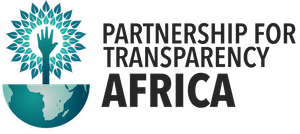
Health, education, nutrition, and other public services have the potential to greatly improve the lives of people across the continent. However, without proper monitoring and accountability, inefficiencies, mismanagement and corruption often prevent resources from reaching the citizens who need them most. Poor people often have limited access to information and can remain uninformed about their rights, leaving them susceptible to exploitation and exclusion.
Local communities can become effective independent watchdogs to help to reduce opportunities for corruption and work with leaders to correct service delivery breakdowns. Social accountability tools empower citizens to have oversight over public service providers to ensure the quality and integrity of the services they provide. Examples of such tools include among others: citizen report cards, public expenditure tracking surveys, access to information laws and tools, community score cards, and social audits. See PTF’s Working Paper on “Strategies for Empowering Communities to Demand Good Governance and Seek Increased Effectiveness of Public Service Delivery” for more.

In Africa, public health service delivery is often compromised by the absence of accountability and oversight at the local level, creating a situation rife for corruption. We believe that the patients at public health facilities are best able to identify the maltreatment, waste and corruption they confront. Our innovative approaches put citizens first. PTF supported projects have monitored the provision of overall public health services at the local level, such as the procurement and provision of drugs to clinics.

The cost of corruption is in education is high. The end result is limited access to – and poor quality of – education. PTF projects in education have addressed problems of governance, poor transparency and corruption in four main areas: (i) use of school resources; (ii) school construction; (iii) procurement and delivery of textbooks and other school supplies; and (iv) professional misconduct related to student admissions, examinations and teacher hiring.
You may also be interested in...
-

Citizen Action Platform (Uganda)
The Citizen Action Platform (CAP) program is a flexible interface that collects individual feedback on public service delivery as it is submitted to UNICEF's U-Report program, and confidentially re-distributes relevant information to community-based organizations, who monitor the quality of public services and seek accountability for action at the local level.R0.00 donatedDonate -
 8.125
8.125Legal Protections Against Gender Based Violence in South Africa
More than 50% of women in South Africa experience domestic violence at least once in their lifetime and three-quarters of men admit to perpetrating some form of violence against women. This program aims to improve access to the justice system and other quality public servicesfor survivors of Gender Based Violence (GBV).R65,000.00 donated of R800,000.00 goalDonate


